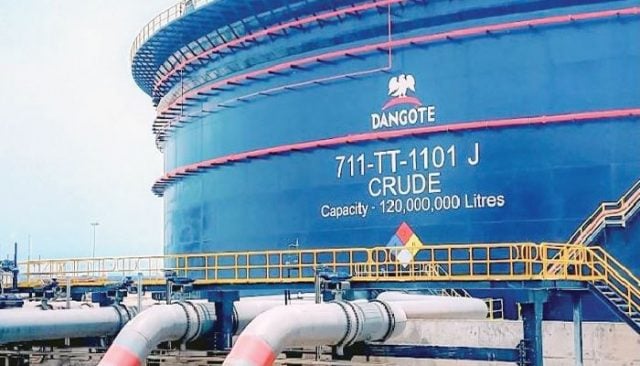The management of Dangote Petroleum Refinery and Petrochemicals has begun a sweeping reorganisation of its operations and workforce, citing repeated cases of sabotage that posed safety risks at the 650,000-barrel-per-day facility.
In a letter dated September 24 and signed by the Chief General Manager of Human Asset Management, Femi Adekunle, staff were informed of the decision, which the company said was necessary to address “major safety concerns” caused by reported sabotage in several units of the refinery.
The letter directed affected employees to hand over company property, obtain clearance, and await computation of entitlements by the Finance Department in line with their service conditions.
A senior refinery official confirmed the authenticity of the letter but rejected reports of a mass sacking. “Yes, the letter is correct. But the interpretation is wrong,” the official told The PUNCH. “It has nothing to do with unionism. This is a clean-up exercise to check where the sabotage and leakages are coming from.”
He explained that the move was sudden to prevent those allegedly involved from concealing their actions, adding that some workers may be reabsorbed after investigations. “It doesn’t mean they have been sacked. What was done was to put a check in place,” the official said.
The company stressed that operations at the plant were continuing with both Nigerian and expatriate staff still active. “Anyone who doesn’t have a hand in sabotage has nothing to worry about,” the official added.
The refinery, which began operations in 2024, has faced mounting challenges, including disputes with oil workers’ unions over labour practices and safety standards, as well as disagreements with petroleum marketers on pricing and distribution arrangements.
In recent months, the Nigeria Union of Petroleum and Natural Gas Workers (NUPENG) accused the company of unfair labour practices, while marketers alleged that its pricing policies risked distorting the downstream market.
Dangote spokesperson Anthony Chiejina did not respond to requests for comment on the latest development.
The $20 billion refinery was launched with the promise of reducing Nigeria’s reliance on imported petroleum products, but operational turbulence and industrial disputes have continued to test its progress.

